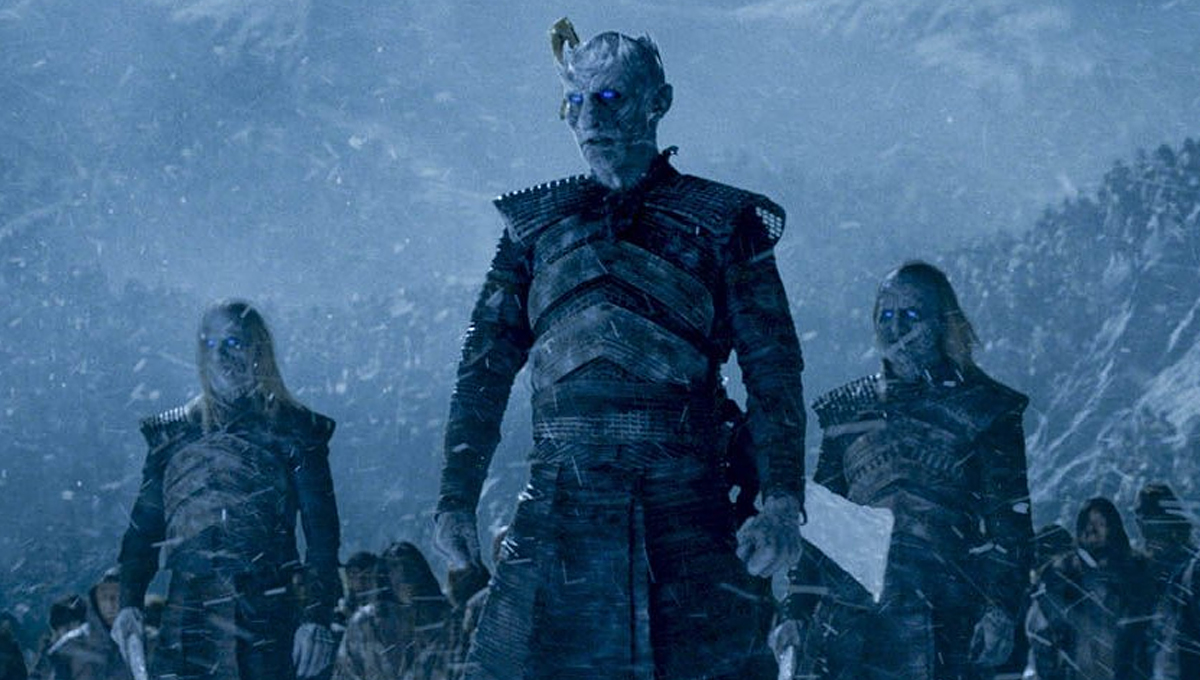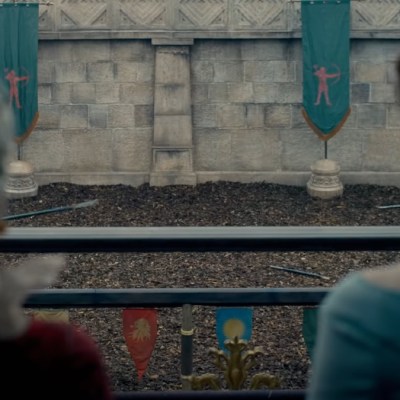Game of Thrones is readying a return to Westeros in 2022 with House of the Dragon. Set around 200 years in the past, during the height of the Targaryens’ incestuous, dragon-riding royal reign, the series is the first of HBO’s ongoing prequel pursuits. However, it also represents an enormously expensive mulligan, since it arrives in the aftermath of an extravagant pilot produced for a completely different prequel project, which was not picked up and still languishes unseen by audiences. Interestingly, new details have surfaced regarding the nixed project’s price tag and how it directly led to the prequel series that will ultimately arrive.
While HBO’s initial Game of Thrones prequel attempt never bore an official title, reports revealed it to be a story of ancient proportions, set thousands of years earlier, which—based on the elaborate history in creator George R.R. Martin’s literary lore—earned it de facto names such as “The Long Night” and “Bloodmoon.” Yet, its rejection remains a shocking development, notably because the pilot was headlined by Oscar-winning actress Naomi Watts. However, an insider interview in James Andrew Miller’s book, Tinderbox: HBO’s Ruthless Pursuit of New Frontiers (via Insider), reveals that the network was alarmed by the project’s tonal contrast from the original series, and, more practically, the obscene price tag for just the pilot.
“They had spent over $30 million on a Game of Thrones prequel pilot that was in production when I got there,” said former WarnerMedia chairman Bob Greenblatt. “And when I saw a cut of it in a few months after I arrived, I said to Casey [HBO chief content officer Casey Bloys], ‘This just doesn’t work and I don’t think it delivers on the promise of the original series.’ And he didn’t disagree, which actually was a relief.”
While specific details on “The Long Night” project has yet to surface, the $30 million that Greenblatt alleges went into its pilot paints a more grandiose picture than one might have previously envisioned. Said pilot was shot in 2019 under the creative auspices of an experienced genre television director in S.J. Clarkson (Jessica Jones, The Defenders), who worked off a script by a successful genre screenwriter in Jane Goldman (Kingsman: The Secret Service, X-Men: Days of Future Past). Additionally, the drawing power of star Naomi Watts was complemented by an impressive supporting cast consisting of names like Jamie Campbell Bower, Miranda Richardson, John Simm, Denise Gough, Georgie Henley, Naomie Ackle and John Heffernan.
Indeed, all of the variables, at least on paper, pointed to an auspicious formula for accomplishing the ambitious aim of showcasing a fantastical tale. Set during the ancient “Age of Heroes,” the story would become relegated to Westerosi legend—as briefly teased on the main series in Bran Stark’s warg-induced flashbacks—about the origin of the Children of the Forest, and the vengeful member of the First Men who would become the Night King and unleash the white walkers and an undead army of wights during the Long Night, a period of perennial darkness across the known world. Moreover, with its era set around 8,000 years before the main series, the prequel would have operated in a version of Westeros that—in an arguably refreshing manner—is unrecognizable to fans. In fact, in 2019, Martin himself teased a chaotic dynamic due to a setting filled with 100 separate “petty kingdoms,” although guaranteeing the presence of direwolves and white walkers.
Read more
However, based on Greenblatt’s comments, the pilot didn’t seem to evoke the Game of Thrones branding in a strong enough manner to justify its existence. It’s an understandable notion, given the project’s clear detachment from most familiar and iconic elements from the main series. While hardcore fans would be excited to see a radically different, practically-prehistoric version of Westeros, the larger demographic of casual watercooler viewers would likely struggle to make meaningful connections. Additionally, with the main series having already played out the threat of the Night King in his attempt to recreate the Long Night and conquer Westeros, starting with Winterfell, such stakes would be a hard sell. Plus, some theorists believe that the duo of Clarkson and Goldman took the ancient setting—and its mythical status in Martin’s lore—as a license to take the series in unproductively anachronistic directions that would have further alienated the series from the sacred small screen continuity and its literary source material.
Regardless, upon the 2019 completion of the exorbitant pilot, HBO quickly impaled it with a proverbial dragonglass dagger, shattering its series hopes to pieces. “So, we unfortunately decided to pull the plug on it,” explained Greenblatt. “There was enormous pressure to get it right and I don’t think that would have worked.” However, from what was, in hindsight, an egregiously costly mistake, came a new prequel strategy that will finally bear the fruit that is House of the Dragon. While its 200-years-past setting relegates the series to history, it will nevertheless be a modern tale in the context of the mythos, focused on the travails of Targaryens, Starks and yes, even those damn Lannisters, in familiar settings, with drama that’s more immediately relevant to the main series. Moreover, HBO executives opted to exercise patience in picking a project that worked and greenlighting it as a series, rather than blow $30 million on an untested concept. Yet, it’s a lesson that had to be twice-learned, since Game of Thrones famously abandoned its underwhelming original pilot.
“I’m the one who encouraged Casey to greenlight it to series,” said Greenblatt. “I said, ‘Let’s not risk $30 million on a pilot.’ You can’t spend $30 million on a pilot and then not pick it up. So, I said, ‘Let’s not make a pilot. Let’s get a great series that we feel good about, and just make it. Or not.’”
Fortunately, the course correction seems to have proven expedient, since House of the Dragon has been in production since April, and even enticed fans with a trailer in October, teasing a 2022 HBO release date. Additionally, amongst the subsequent slate of mooted prequel projects, it appears that Dunk & Egg—set around 90 years before the main series, following the famous prince and uncouth knight companion—is gaining momentum, with HBO having reportedly hired Steve Conrad (Perpetual Grace, LTD, Patriot) to write and develop a potential series. Yet, it will be interesting to see if “The Long Night” pilot would ever surface, if anything, to mollify our morbid curiosity.


